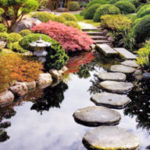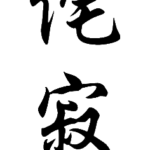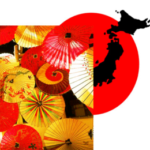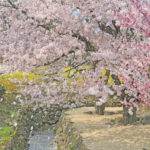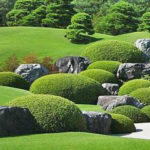 When I found out about wabi-sabi, I haven’t thought that much about what these words meant in a translation. I was ok with the abbreviated explanation of the principles of Japanese aesthetics. I perceived wabi-sabi as its name. I just liked the words and I liked their sound. Especially what they represent today.
When I found out about wabi-sabi, I haven’t thought that much about what these words meant in a translation. I was ok with the abbreviated explanation of the principles of Japanese aesthetics. I perceived wabi-sabi as its name. I just liked the words and I liked their sound. Especially what they represent today.
However, it is true that these words had and do have some sort of original meaning in Japanese (not a single word and nor easily translatable), which has evolved and changed over the centuries.
The historical meaning of the words Wabi and Sabi
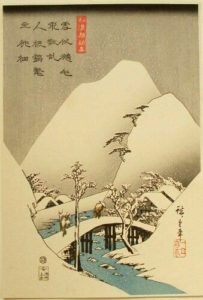 Once upon a long time ago the meaning of these words was very gloomy: “Wabi” indicated the misery of a lonely life in nature, sadness and dejection. “Sabi” meant cold, poor or even withered. At the end of 14th century, these words began to shift towards a somewhat more positive and poetic meaning – the voluntary loneliness and poverty of hermits and ascetics were taken as an opportunity for spiritual enrichment as a basis for new and pure beauty.
Once upon a long time ago the meaning of these words was very gloomy: “Wabi” indicated the misery of a lonely life in nature, sadness and dejection. “Sabi” meant cold, poor or even withered. At the end of 14th century, these words began to shift towards a somewhat more positive and poetic meaning – the voluntary loneliness and poverty of hermits and ascetics were taken as an opportunity for spiritual enrichment as a basis for new and pure beauty.
What do the words Wabi and Sabi mean today
 “Wabi” today means something like simple, non-materialistic, modest, humble of his own volition, in accordance with nature, perceptive. “Sabi” can be literally translated as “blossom of time”-or a nice patina, it’s something that has been going on for some time. At present, both these words are often perceived by many Japanese as having more or less the same meaning.
“Wabi” today means something like simple, non-materialistic, modest, humble of his own volition, in accordance with nature, perceptive. “Sabi” can be literally translated as “blossom of time”-or a nice patina, it’s something that has been going on for some time. At present, both these words are often perceived by many Japanese as having more or less the same meaning.



